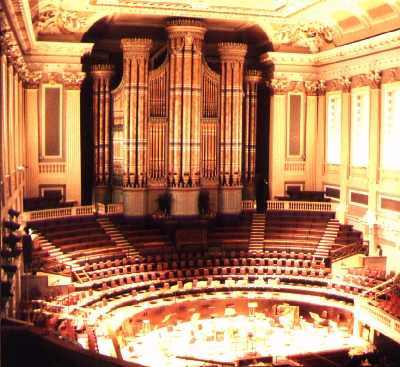 |
| Located a little more than
halfway between London and Liverpool, Birmingham is the second largest
city in England, the sixth largest metropolitan area in the UK, and
in the heart of the Midlands. Birmingham's original industrial importance
grew out of its situation near coal and iron ore fields resulting in
its development as a steel town. Also, like other major British industrial
cities in the Second World War, the Germans heavily bombed Birmingham. |
| In the post-war years, Birmingham
had to rebuild itself and remains an important manufacturing
center. Moreover, the city has developed an thriving arts life. |
| |
| Left: Birmingham Town Hall |
| |
| |
| Below: The Fortunes on Ready, Steady, Go! |
|
